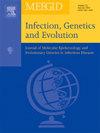Single-cell RNA sequencing in high-burden viral respiratory infections: Decoding immune cell subsets and immune-related differential gene expression
IF 2.6
4区 医学
Q3 INFECTIOUS DISEASES
引用次数: 0
Abstract
Respiratory infections remain a major global health burden, ranking among the leading causes of mortality worldwide. Single-cell RNA sequencing (scRNA-seq) has emerged as a transformative technology for dissecting the cellular and molecular complexity of these infections. This review focuses on recent scRNA-seq studies investigating the immune landscape of high-burden viral respiratory infections, particularly COVID-19 and influenza, which are characterized by high transmissibility and clinical impact. We provide an overview of publicly available scRNA-seq datasets derived from human peripheral blood and bronchoalveolar lavage fluid (BALF), as well as lung tissues and explants from murine models, emphasizing their value in profiling immune heterogeneity. scRNA-seq has revealed significant remodeling of immune cell populations during infection, including the identification of novel subsets such as CD4+ c13-MKI67+ CCL5low T cells, CD8+ CXCR3high GZMA+ T cells, and CD56high CD16− GZMB+ NK cells. These subsets are frequently associated with differential expression of cytokines, chemokines, and interferon-stimulated genes that reflect disease severity and progression. In addition, scRNA-seq has highlighted key pathogen-induced pathways, including type I interferon, NF-κB, and JAK/STAT signaling, and has identified emerging immune-related biomarkers—such as PTX3, MCEMP1, CXCR4, IFIT1, ISG15, and STAT1—with potential diagnostic and prognostic utility. While scRNA-seq applications in respiratory infections of other microbial origins are limited, its role in mapping immune responses and guiding biomarker discovery in viral infections is rapidly expanding. This review synthesizes these findings to inform future translational research and immunodiagnostic strategies.
高负荷病毒性呼吸道感染的单细胞RNA测序:解码免疫细胞亚群和免疫相关差异基因表达
呼吸道感染仍然是一个主要的全球健康负担,是全世界死亡的主要原因之一。单细胞RNA测序(scRNA-seq)已经成为一种革命性的技术,用于解剖这些感染的细胞和分子复杂性。本文综述了最近的scRNA-seq研究,研究了高负担病毒性呼吸道感染的免疫景观,特别是COVID-19和流感,这些疾病具有高传染性和临床影响。我们概述了来自人类外周血和支气管肺泡灌洗液(BALF)以及小鼠模型肺组织和外植体的公开可用scRNA-seq数据集,强调了它们在分析免疫异质性方面的价值。scRNA-seq揭示了感染期间免疫细胞群的显著重塑,包括鉴定出新的亚群,如CD4+ c13-MKI67+ CCL5low T细胞、CD8+ CXCR3high GZMA+ T细胞和cd56高CD16- GZMB+ NK细胞。这些亚群通常与反映疾病严重程度和进展的细胞因子、趋化因子和干扰素刺激基因的差异表达有关。此外,scRNA-seq还发现了关键的病原体诱导通路,包括I型干扰素、NF-κB和JAK/STAT信号,并发现了新兴的免疫相关生物标志物,如PTX3、MCEMP1、CXCR4、IFIT1、ISG15和stat1,具有潜在的诊断和预后价值。虽然scRNA-seq在其他微生物来源的呼吸道感染中的应用有限,但它在绘制免疫反应和指导病毒感染中生物标志物发现方面的作用正在迅速扩大。这篇综述综合了这些发现,为未来的转化研究和免疫诊断策略提供信息。
本文章由计算机程序翻译,如有差异,请以英文原文为准。
求助全文
约1分钟内获得全文
求助全文
来源期刊

Infection Genetics and Evolution
医学-传染病学
CiteScore
8.40
自引率
0.00%
发文量
215
审稿时长
82 days
期刊介绍:
(aka Journal of Molecular Epidemiology and Evolutionary Genetics of Infectious Diseases -- MEEGID)
Infectious diseases constitute one of the main challenges to medical science in the coming century. The impressive development of molecular megatechnologies and of bioinformatics have greatly increased our knowledge of the evolution, transmission and pathogenicity of infectious diseases. Research has shown that host susceptibility to many infectious diseases has a genetic basis. Furthermore, much is now known on the molecular epidemiology, evolution and virulence of pathogenic agents, as well as their resistance to drugs, vaccines, and antibiotics. Equally, research on the genetics of disease vectors has greatly improved our understanding of their systematics, has increased our capacity to identify target populations for control or intervention, and has provided detailed information on the mechanisms of insecticide resistance.
However, the genetics and evolutionary biology of hosts, pathogens and vectors have tended to develop as three separate fields of research. This artificial compartmentalisation is of concern due to our growing appreciation of the strong co-evolutionary interactions among hosts, pathogens and vectors.
Infection, Genetics and Evolution and its companion congress [MEEGID](http://www.meegidconference.com/) (for Molecular Epidemiology and Evolutionary Genetics of Infectious Diseases) are the main forum acting for the cross-fertilization between evolutionary science and biomedical research on infectious diseases.
Infection, Genetics and Evolution is the only journal that welcomes articles dealing with the genetics and evolutionary biology of hosts, pathogens and vectors, and coevolution processes among them in relation to infection and disease manifestation. All infectious models enter the scope of the journal, including pathogens of humans, animals and plants, either parasites, fungi, bacteria, viruses or prions. The journal welcomes articles dealing with genetics, population genetics, genomics, postgenomics, gene expression, evolutionary biology, population dynamics, mathematical modeling and bioinformatics. We also provide many author benefits, such as free PDFs, a liberal copyright policy, special discounts on Elsevier publications and much more. Please click here for more information on our author services .
 求助内容:
求助内容: 应助结果提醒方式:
应助结果提醒方式:


